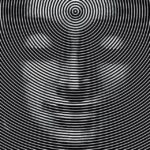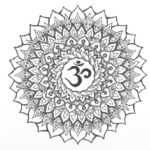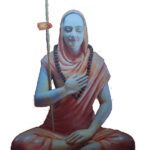Recent Comments
- Scott on Aloneness
- Chodpa on The Place where the Primordial Speaks
- Chodpa on The Cuckoo of Presence
- Afzar on Bodhidharma’s teacher, Prajnatara
- Vajragoni on Audiobook is released
-
Recent Posts
Categories
- A Darkness Visible
- A Docetic Assessment
- A Mystical Odyssey through the Sagathakam
- AI Creations
- Akṣayamatinirdeśasūtra
- Akṣhobhya’s Pure Land
- Ālaya-vijñāna
- Anūnatvāpūrṇatvanirdeśaparivarta
- Ariyapariyesanā Sutta
- Ascending the Noble Mountain of Primordial Perfection
- Asceticism
- Ashtavakra Gita in Light of the Unborn
- Audiobook
- Bankei Zen
- Beyond the Ascent
- Beyond the Rainbow Body
- Black Dragon Eye Mandala
- Bodhicitta
- Buddhadharma
- Buddhism’s Black Holes
- Buddhist Anecdotes
- Buddhist Hells
- Buddhist Meditations on the Tarot
- Chuang-Tzu
- Contemporary Musings
- Ḍākiṇī
- Dāsbodh
- Dharmakaya Abbey
- Dharmakaya Stick
- Divine Revelation
- Doctrine of the Void
- Dust Contemplation
- Ekacitta: Advanced Studies in Dark Zen
- Entry into the Dharmadhātu
- Eremitical Dhyani Meditations
- Exploring the Book of Revelation
- Gnostikos
- Hsin Hsin Ming
- Journey to the Center of the Mind
- Karma and Rebirth
- Korean Sŏn
- Kulayarāja Tantra—The Motherly Buddha
- Little Office of Our Lady of the Void
- LSD and Psychedelic Buddhism
- Māṇḍukya Kārikā
- Mañjuśrī Teaches Prajñāpāramitā
- Māra and Satan
- Meister Eckhart
- Mud and Water: Bassui Zen
- Mystagogia
- Nirvana
- Notes from the Iron Stupa
- Nothingness in Nāgārjuna and John of the Cross
- Obscure Religious Cults
- Preparation for the Afterlife
- Primordial Qigong
- Reflections on the Saṃdhinirmocana Sūtra
- Spirituality
- Springtime with Tozen
- Terma: A Mind Film by Vajragoni
- The Afterglow
- The Awakening of Faith
- The Bhagavad Gita
- The Book of Bodhi
- The Cloud of Unknowing in Light of the Unborn
- The Diamond Sutra
- The Divine Ātman
- The Divine Liturgy of Vajrasattva
- The Doctrine of Awakening
- The Dragon Mind of Zen Tarot
- The Elucidation of Consciousness
- The Experience of No-Self
- The Great Perfection of the Unborn Mind: A Book of Privy Counseling
- The Heart Sutra
- The Hermit's Den
- The Khaggavisāṇa Sutta: A Rhinoceros Horn
- The Lankavatara Sutra
- The Lankavatarian Book of the Dead
- The Lion's Roar of Queen Śrīmālā
- The Lotus Sutra
- The Mahāparinirvāṇasūtra
- The Naga Chronicles
- The Platform Sutra
- The Ratnagotravibhāgaśāstra
- The School of the Spirit
- The Secret Golden Light of the Unborn
- The Soul
- The Śūrańgama Sūtra
- The Sutra of Primordial Enlightenment
- The Tathāgatagarbhatārā Tantra
- The Udāna
- The Unborn Mind Mythos
- The Unborn Mind Sessions
- The Unborn Odyssey: A Novel
- The Vajrasamādhi Sutra
- The Vimalakirti Sutra
- The Yogasūtras of Patañjali
- The Zen Teaching of Bodhidharma
- The Zen Teaching of Instantaneous Awakening
- The Zen Teachings of Huang Po
- Theologia Mystica
- Tozen Teaching
- Tsung-mi: An Intimate Study
- Unborn I Ching
- Unborn Light Reiki
- Uncategorized
- Vasubandhu and the Absolute
- Wisdom from the Masters
- Wordsworth and Zen
- Yoga of the Manomayakāya
- Zen
- Zuowang
Archives
- October 2024
- August 2024
- February 2024
- January 2024
- December 2023
- November 2023
- October 2023
- September 2023
- August 2023
- July 2023
- June 2023
- May 2023
- April 2023
- March 2023
- February 2023
- January 2023
- December 2022
- November 2022
- October 2022
- September 2022
- August 2022
- May 2022
- April 2022
- March 2022
- February 2022
- January 2022
- December 2021
- November 2021
- October 2021
- September 2021
- August 2021
- May 2021
- April 2021
- March 2021
- February 2021
- January 2021
- December 2020
- November 2020
- October 2020
- September 2020
- August 2020
- May 2020
- April 2020
- March 2020
- February 2020
- January 2020
- December 2019
- November 2019
- October 2019
- September 2019
- August 2019
- June 2019
- February 2019
- January 2019
- December 2018
- October 2018
- August 2018
- April 2018
- March 2018
- February 2018
- January 2018
- December 2017
- November 2017
- October 2017
- September 2017
- August 2017
- May 2017
- April 2017
- March 2017
- February 2017
- January 2017
- December 2016
- November 2016
- October 2016
- September 2016
- August 2016
- July 2016
- May 2016
- April 2016
- March 2016
- February 2016
- January 2016
- December 2015
- November 2015
- October 2015
- September 2015
- August 2015
- July 2015
- June 2015
- May 2015
- April 2015
- March 2015
- February 2015
- January 2015
- December 2014
- November 2014
- October 2014
- September 2014
- August 2014
- May 2014
- April 2014
- March 2014
- February 2014
- January 2014
- December 2013
- November 2013
- October 2013
- September 2013
- August 2013
- May 2013
- April 2013
- March 2013
- February 2013
- January 2013
- December 2012
- November 2012
- October 2012
- September 2012
- August 2012
- May 2012
- April 2012
- March 2012
- February 2012
- January 2012
- December 2011
- November 2011
- October 2011
Meta
Category Archives: Māṇḍukya Kārikā
A Dream Within A Dream

All that we see or seem is but a dream within a dream (Edgar Allan Poe)
Nothing, whatsoever, is born either of itself or of another. Nothing is ever produced whether it be being or a non-being or both being and non-being.
Posted in Māṇḍukya Kārikā
Tagged being or non-being, dream, Edgar Allan Poe, fire-brand, Supra-cognition
Leave a comment
Illusion

CHAPTER II
ILLUSION (Vaitathya)
The Lord (Ātman), with his mind turned outward, variously imagines the diverse objects (such as sound, etc.), which are already in his mind (in the form of Vāsanas or Sankalpas or desires). The Ātman again (with his mind turned within), imagines in his mind various (objects of) ideas.
Posted in Māṇḍukya Kārikā
Tagged Atman, Gandharvas, illusion, maya, Mind Unbound, Nirabhasagocara, pluralized obstruction mode
Leave a comment
The Sacred Science of Aum

The remainder of the Māṇḍūkya Upaniṣad reiterates what has already been covered on the nature of Aum and Ātman as a mystical science and sacred formula for the ages. The translation is by Swami Krishnananda and commentary will be offered for the final segment on the Divine Turīya, since it comes closest to the Nature of the Unborn.
The Four States

III
How the four quarters are said to indicate Ātman –is thus explained…
The first quarter (Pāda) is *Vaiśwānara whose sphere (of activity) is the waking state, who is conscious of external objects, who has seven limbs and nineteen mouths and whose experience consists of gross (material) objects.
Posted in Māṇḍukya Kārikā
Tagged deep sleep state, Deep-Samadhi, dream state, Lord Iśwara, Taijasa, The Four States, Turīya, Vaiśwānara, Veil of Maya, waking state
Leave a comment
AUM

The sequence used in this series is to firstly place the text, followed by Śaṅkara’s commentary, and then subsequently a commentary in Light of the Unborn. The main translation used will be by Swami Nikhilananda, unless otherwise noted.
Posted in Māṇḍukya Kārikā
Tagged AGAMA PRAKARANA, Atman, AUM, auspicious, Brahman, Hari, Shining Ones, Soundless Sound, Turīya, Unborn Light Reiki
Leave a comment
Śaṅkara

Before the continuation of our series, reference needs to be made to the most renowned exponent of the Advaita Vedanta school of philosophy, Adi Śaṅkara (700-750 CE), since we shall be utilizing from time to time his commentary on the Māṇḍukya Kārikā. Some have placed his death at 32 years of age but the dates, 700-750, grounded in modern scholarship, are more widely acceptable. He wrote numerous works during his brief stay on this earth, but his monumental work, Brahmasūtrabhāṣya , is considered to be second to none in Indian metaphysics. His teacher was Govinda, who in turn was originally taught by Gauḍapāda. His primary assent to truth is psychological and religious rather than logical; thus, he is perhaps best known as a prominent religious teacher rather than a philosopher in today’s modern terminology.
Māṇḍukya Kārikā

One of the premier texts in Advaitic literature is the Māṇḍukya Kārikā, attributed to the 6th century CE philosopher and scholar of the Advaita (not two) *Vedanta (end of the Vedas) school of Hindu philosophy—Gauḍapāda, also referred to as Gauḍapādācārya. It consists of four chapters, the first of which focuses on the Māṇḍūkya Upaniṣad. A small work, utilizing just 12 short stanzas, it actually consists of the absolute essence of the Upanishadic teachings. In itself, the work has never been surpassed and remains to this day the peak of awareness-expansion.
Posted in Māṇḍukya Kārikā, Spirituality
Tagged Advaita Vedanta, Gauḍapāda, Māṇḍukya Kārikā, Māṇḍūkya Upaniṣad, Vedanta
Leave a comment
